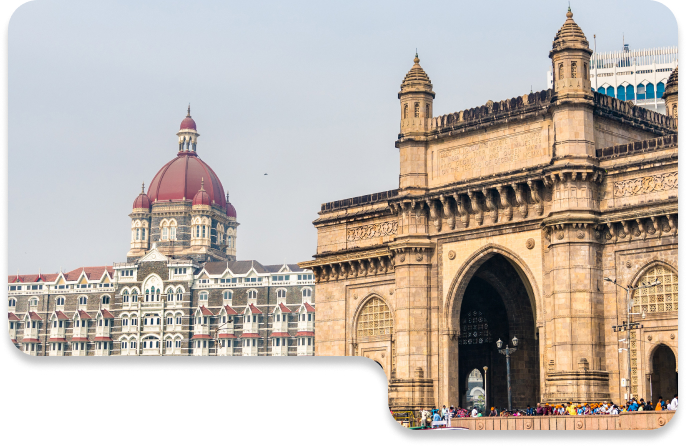India’s workforce carries a 20-year health disadvantage compared to developed economies. This gap drives higher risks of chronic illness, absenteeism, and long-term healthcare costs for employers. But for HR leaders, this is not just a challenge, it’s also an opportunity to turn health benefits into a competitive advantage.
Why This Matters Now for Indian Organizations
The market has grown significantly. Health insurance premium income rose to ₹37,528.92 crore in March 2025, compared to ₹32,354.28 crore the previous year. Industry projections suggest India’s overall insurance market could reach ₹19,30,290 crore ($222 billion) by FY26, expanding at 17% CAGR. More importantly, 92% of organizations that partnered with the right group health insurance providers reported measurable improvements in retention and productivity.
Against this backdrop, selecting the right health insurers and brokers has become a strategic decision.
This guide highlights the top-performing players and digital-first trends shaping employee benefits in 2025.
Which Companies Lead India's Insurance Market in 2025?
Top Health Insurance Companies by Claim Settlement Ratio
The latest IRDAI data reveals significant variations in claim settlement performance:
Highest Performers (CSR above 95%):
- Niva Bupa Health Insurance: 100% CSR
- Care Health Insurance: 100% CSR
- Reliance General Insurance: 99.57% CSR
- HDFC Ergo Health Insurance: 99.16% CSR
- Digit Insurance: 96.71% CSR
Strong Performers (CSR 90-95%):
- Star Health & Allied Insurance: 92.02% CSR
- ICICI Lombard General Insurance: Comprehensive digital claims processing
- Bajaj Allianz General Insurance: Strong customer service platforms
Leading Group Health Insurance Brokers in 2025
Unlike insurers, brokers are strategic partners who work with multiple insurance companies to design and manage policies tailored to each workforce. For HR leaders, the broker’s role is critical: they simplify complex policies, optimize costs, and integrate wellness benefits.
Why Brokers Matter
- Strategic Design: Help employers customize benefits for diverse employee groups.
- Cost Optimization: Negotiate with insurers, introduce super top-ups, and reduce overheads.
- Employee Experience: Offer wellness tools, medical advisory services, and streamlined claims support.
- Digital Enablement: Provide dashboards, mobile apps, and AI-driven claims tracking.
Top Group Health Insurance Brokers:
- Loop: Founded in 2018, Loop combines prevention, protection, and care through 24/7 medical advisor support and unlimited doctor consultations
- Marsh India: Global presence across 18+ offices, focuses on insurance solutions
- Aon (formerly Anviti): Comprehensive range from health coverage to retirement solutions, established reputation since 2016
- Plum Insurance: Tech-driven platform focused on SMEs, user-friendly dashboard for policy management
- Pazcare: Serves 2000+ clients with personalized group health insurance solutions
How Digital-First Models Are Transforming Employee Benefits
India is the second-largest insurtech market in Asia-Pacific, accounting for 35% of $3.66 billion in venture funding. Digital-first brokers and insurers are reshaping employee wellness benefits through:
- AI-powered tools for coverage assessment and claims automation.
- Mobile-first platforms that allow employees to access policies, raise claims, and book consultations instantly.
- Embedded insurance integrated into e-commerce and fintech platforms.
- Preventive care integration — annual checkups, fitness tie-ups, and mental health programs built into corporate plans.
For HR leaders, this means lower administrative overheads, better employee adoption, and reduced long-term costs.
Frequently Asked Questions
Which insurance companies offer the best employee wellness benefits in India?
The best employee wellness benefits come from providers focusing on prevention, not just treatment. HDFC Ergo offers comprehensive coverage with 99.16% CSR, while Digit Insurance provides tech-driven solutions with 96.71% CSR. Brokers that emphasize prevention and experience (Loop, Marsh, etc).
What are the ideal claim settlement ratios for corporate health insurance?
For reliability, target providers with a CSR above 90%. However, balance this with the Incurred Claim Ratio (ICR) between 70-90%, indicating sustainable operations. Companies like Niva Bupa (100% CSR) and Reliance General (99.57% CSR) excel in both metrics.
How do digital-first group health insurance brokers reduce costs?
Digital-first brokers reduce costs through automated processes, direct insurer partnerships, and data-driven risk assessment. They eliminate traditional agent commissions while providing superior employee experience through mobile apps and AI-powered support. Loop Health and Plum Insurance exemplify this model with tech-enabled cost optimization.
What regulatory changes affect corporate health insurance in 2025?
IRDAI introduced significant changes in 2024: removed entry age limits for employees above 65, reduced pre-existing disease waiting periods from 4 to 3 years, and eliminated sum insured sub-limits for certain treatments. These changes expand coverage options for companies with diverse workforce demographics.
Which metrics matter most when evaluating group health insurance providers?
Focus on three critical metrics: Claim Settlement Ratio (target 90%+), Incurred Claim Ratio (70-90% optimal), and claim processing time (under 30 days per IRDAI guidelines). Additionally, evaluate network hospital coverage, preventive healthcare offerings, and digital platform capabilities for employee engagement.
How can companies optimize tax-efficient benefits through insurance?
Companies can maximize tax benefits under Section 80D for employee health insurance premiums. Group term life insurance premiums are deductible business expenses, while employees enjoy tax-free benefits. Strategic use of super top-ups and preventive healthcare add-ons creates additional tax optimization opportunities while enhancing employee value.
Build Your Strategic Insurance Partnership
India's insurance transformation creates unique opportunities for forward-thinking organizations. The convergence of traditional reliability and digital innovation enables companies to build comprehensive employee wellness programs that drive productivity, retention, and competitive advantage.
Success requires partners who understand both insurance fundamentals and emerging workforce needs. Whether you choose established players like LIC and HDFC Life for stability, or innovative brokers like Loop Health for prevention-focused approaches, prioritize providers with strong claim settlement ratios, comprehensive digital platforms, and proactive healthcare philosophy.
The 20-year health gap facing Indian workers is closeable through strategic insurance partnerships. Choose providers who see employee wellness as an investment in organizational strength, not just risk mitigation.














